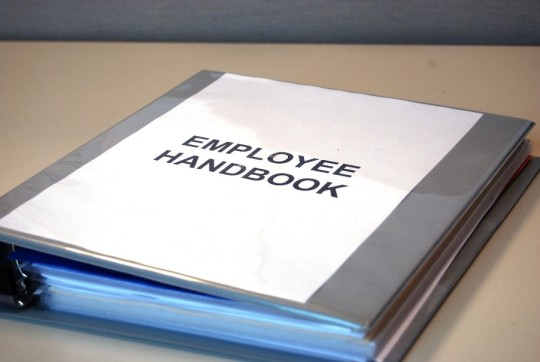Federal and state legal developments over the
last year brought a lot of changes that impact workplace policies and
procedures, making it critical for companies to review their handbooks for
compliance.

“2016 was the busiest year I can recall
in this regard,” said Elaine Diedrich, an attorney with Littler Mendelson,
P.C., the largest US-based employment law firm.
Employers should take a close look at their
policies. From National Labor Relations Board (NLRB) decisions to local
paid-sick-leave laws, here are some of the important changes to note from the
past year.
1. NLRB Decisions
“At the federal level, we’ve seen a lot
from the NLRB.” Employers should review their social media policies, keeping in
mind the NLRB’s August 18, 2016 decision that found that Chipotle’s
social media policy prohibiting employees from "posting
incomplete, confidential or inaccurate information” violated the National
Labor Relations Act (NLRA).
Employers should examine and possibly rewrite
“any policy that simply tells employees they need to act professionally
and in a positive manner or be nice to customers,” Diedrich said.
2. Reporting Violations
Make sure handbook provisions don’t discourage
employees from reporting potential legal violations to government agencies:
- The Defend Trade Secrets Act of 2016 provides
businesses with a legal remedy if trade secrets are misused. - The Occupational Safety and Health Administration began
enforcing new anti-retaliation provisions on Dec.
1, 2016. Under these rules, employers can’t retaliate against employees for
reporting a workplace injury. - The Equal Employment Opportunity Commission and the
Securities and Exchange Commission also have targeted any policy or
agreement that may be interpreted to curb an employee’s right to go to
these agencies—or other agencies—to report violations of the law
3. Background Checks
Todd Lebowitz, an attorney with BakerHostetler
in Cleveland, said employers need to take a look at their background check
procedures to make sure they align with local laws.
4. Minimum-Wage Changes
Nineteen states raised the minimum wage at the start of the new year, and
Maryland, Oregon and Washington, D.C., will see wage hikes in July 2017,
according to the National
Conference of State Legislatures.
Cities may also have their own local minimum-wage laws that will take effect
this year.
5. Drug Testing Rules
You need to keep up with drug testing policies,
which can be a challenge for multistate employers because every state is
different. The legalization of
marijuana in many states has added to the confusion.
6. Weapons Policies
Many states give concealed-carry holders the right to keep guns in
their locked cars, but some employer policies say no weapons are
allowed anywhere on the premises, including parking lots. This is too broad in
some states.
7. Paid-Sick-Leave Laws
The number of paid-sick-leave laws at the
state and local level is increasing all the time, and keeping up with them can
be a job all in itself, Diedrich said.
These laws aren’t just about the amount of sick leave employees need to be
offered, she said. Employers also need to stay compliant with those laws in the
areas of waiting periods, notice and certification requirements.
8. Employer Size
Many workplace laws only kick in after a
business reaches a certain threshold number of employees. For example, Title I
of the Americans with Disabilities Act, which has its workplace provisions, applies
only to employers with 15 or more employees.
Employers should look at their headcount to determine if any changes triggered
new compliance obligations.
Staying Compliant
There are lots of new laws in a variety of
areas, and it’s important for businesses to keep their policies updated in real
time. They should keep in touch with law firms and HR organizations and set up
alerts to tell them when new laws come out, he added.
That should trigger the employers to look at policies to see if they need to be
updated.
Is your business prepared to update their
handbooks for this year? Do you have the HR personnel necessary to make sure
your business is compliant? If the answer is no, reach out to Converge HR
Solutions for help. We offer HR support for small to mid-size companies. Our
offerings include HR outsourcing, recruitment, human capital management
services, payroll, and much more. Our team of experts will ensure you’re up to
date with your handbook, employment laws, and your individual company policies.
Visit our website for more information visit https://convergehrsolutions.com/. Contact us directly at info@convergehrsolutions.com or 610-296-8550.
Article source: https://www.shrm.org/resourcesandtools/legal-and-compliance/employment-law/pages/employee-handbook-updates-2017.aspx


0 Comments